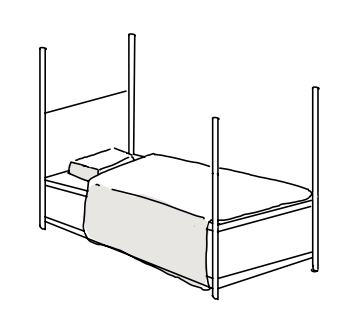
Mountains of homework, an unending to-do list, and just 24 hours in a day–no matter what stage of life you may be in, balancing your work and rest often feels like an impossible task. Oftentimes, sleep is sacrificed to meet midnight deadlines. In the pursuit of academic, athletic, and extracurricular excellence, many lose track of what is most important, health.
The Centers for Disease Control (CDC) recommends that teens between thirteen and seventeen years old should get around eight to ten hours of sleep. And adults, eighteen to seventy, should get seven or more hours of sleep. However, a study done by Nationwide Children’s reveals that the average high schooler gets around seven hours of sleep- a number that declines as academic and extracurricular responsibilities increase throughout high school grades. Junior Isla Bulmer, a committed athlete, shares her schedule.
“Trying to exceed in both athletic and academic performances is difficult no matter what, but balancing them on four hours of sleep makes the challenge almost impossible,” Bulmer said.
The detrimental impacts of sleep deprivation range short-term to long-term impacts. Sleep deprivation can lead to moody, irritable, and cranky behavior as well as a more difficult time regulating mood, making emotional control almost impossible. Over time, lack of sleep impairs cognitive functions such as attention, decision-making, and reaction time. In addition, sleep deprivation causes individuals to engage in risk-taking behaviors such as drinking, speeding, and an array of dangerous activities. Sleep deprivation undermines performance in both academics and athletics. Sophomore Jillian Terrazas shares how sleep impacts her academic and athletic performance.
“I feel slower at processing information causing me to do more work at home because I am not as efficient as at school,” Terrazas said. “As for my athletics I feel more sluggish and slow on my feet which is not ideal for running.”
A study conducted by Gina Marie Mathew, Ph.D., and Lauren Halte, Ph.D., funded by the National Institutes of Health, revealed that participants with more variable bedtimes had an increased chance of receiving a D or lower when compared to those with a more consistent bedtime, showing that teenagers with irregular and late bedtimes are more apt to poor grades. Beyond academics and athletics, long-term sleep deprivation can lead to serious health consequences, including an increased risk of heart disease, diabetes, mental health disorders, and cognitive decline. The detriments of poor sleep quality cannot be ignored.
The blame for poor sleep habits cannot rest solely on students. Many teenagers want to sleep more-but cannot. Isla Bulmer challenges the stereotype that teens are simply procrastinators who mismanage their time.
“It’s easy to say that not getting enough sleep is caused by bad balance and procrastination, but unless a student were to completely cut out all their hobbies and leisure time it’s impractical to expect that students spend eight hours in class, two hours at practice, should arrive home only to be greeted with five plus hours of homework,” Bulmer said.
The reality is that students are forced into an unhealthy routine by external demands. Between academic obligations, sports, extracurriculars and all the multifaceted aspects of life, teens are expected to do it all- and to do it well. In this high pressure environment, sacrificing sleep becomes a survival strategy. However, it should never be a choice between health and achievement. If the education system continues to ignore the increasingly busy lives of students, the well being of future generations is at risk. The time has come to prioritize health over hustle.
















